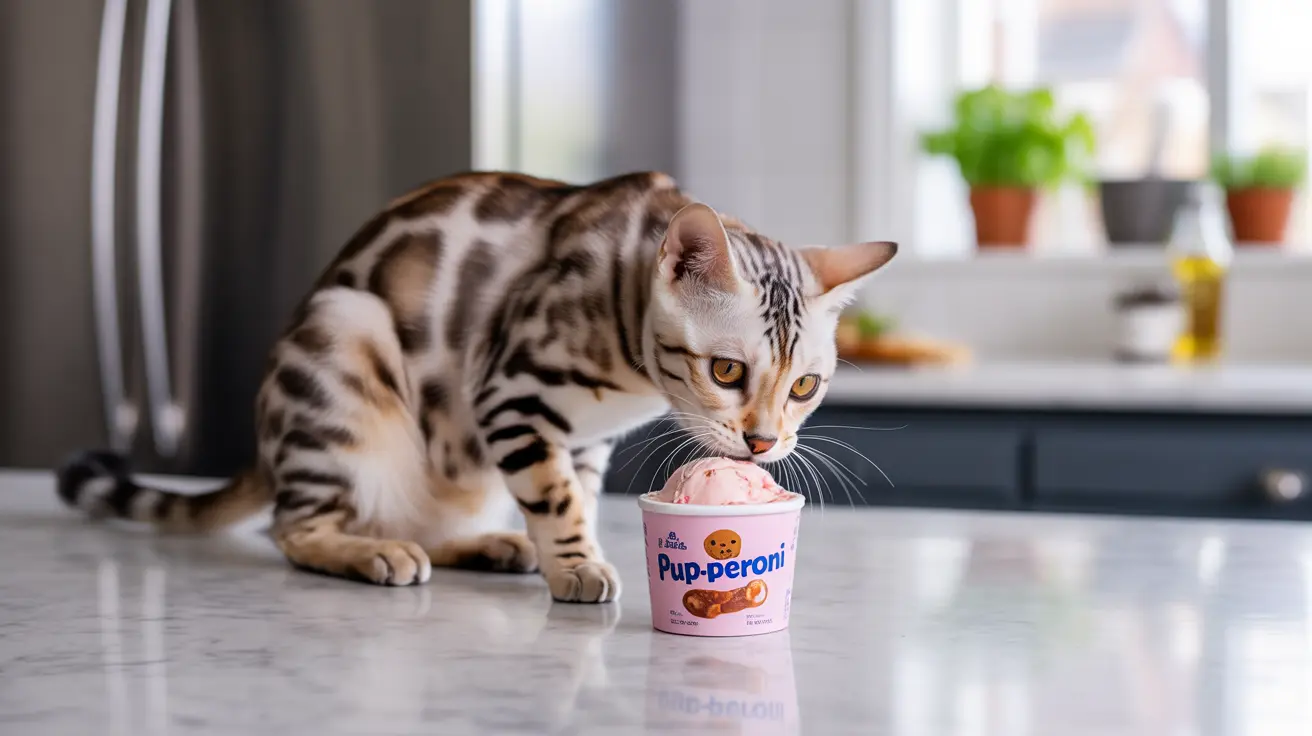Why Dog Ice Cream Isn't Safe for Cats
Cats have specific dietary needs that differ significantly from dogs. As obligate carnivores, cats require particular nutrients and can't process certain ingredients commonly found in dog treats.
Problematic Ingredients for Cats
- Lactose from dairy products
- Added sugars and artificial sweeteners
- Peanut butter and other dog-specific flavorings
- Preservatives and additives
- Unfamiliar proteins that may cause allergies
Health Risks of Feeding Dog Ice Cream to Cats
While a tiny taste of dog ice cream likely won't cause immediate harm, regular consumption can lead to several health issues:
- Digestive upset and diarrhea
- Lactose intolerance symptoms
- Potential allergic reactions
- Weight gain and obesity
- Nutritional imbalances
- Risk of diabetes
Safe Frozen Treat Alternatives for Cats
Instead of sharing dog ice cream with your cat, try these veterinarian-approved alternatives:
Homemade Cat-Safe Frozen Treats
- Frozen wet cat food portions
- Ice cubes made from low-sodium chicken broth
- Frozen tuna water cubes
- Commercial cat-specific frozen treats
Commercial Options
Look for specially formulated cat ice cream products that are:
- Lactose-free
- Made with cat-appropriate proteins
- Free from artificial sweeteners
- Nutritionally balanced for felines
Signs Your Cat May Have Eaten Dog Ice Cream
Watch for these symptoms if your cat has consumed dog ice cream:
- Vomiting or diarrhea
- Lethargy
- Loss of appetite
- Excessive thirst
- Unusual behavior
Best Practices for Treating Your Cat
Follow these guidelines when offering treats to your cat:
- Stick to cat-specific treats only
- Limit treats to 10% of daily caloric intake
- Always supervise treat time
- Store dog and cat treats separately
- Consult your vet before introducing new treats
Frequently Asked Questions
Can cats safely eat dog ice cream like Frosty Paws?
No, cats should not eat dog ice cream. These products contain ingredients that aren't suitable for cats and may cause digestive issues or other health problems.
What ingredients in dog ice cream make it unsuitable for cats?
Lactose, artificial sweeteners, added sugars, and certain proteins or additives make dog ice cream unsuitable for cats. Cats are also obligate carnivores with different nutritional needs than dogs.
What are the risks of feeding dog ice cream to cats regularly?
Regular consumption of dog ice cream can lead to digestive problems, obesity, diabetes, nutritional imbalances, and potential allergic reactions in cats.
Are there safer cold treat alternatives designed specifically for cats?
Yes, there are many safe alternatives including frozen wet cat food, cat-specific frozen treats, and homemade frozen broth cubes made with cat-safe ingredients.
How can I tell if my cat has digestive upset from eating dog ice cream?
Watch for symptoms like vomiting, diarrhea, lethargy, loss of appetite, or changes in behavior. If these symptoms persist, consult your veterinarian.
Remember, while it might be tempting to share treats between your pets, it's always best to stick with species-specific products to ensure your cat's health and safety. When in doubt, consult with your veterinarian about appropriate treats for your feline friend.






